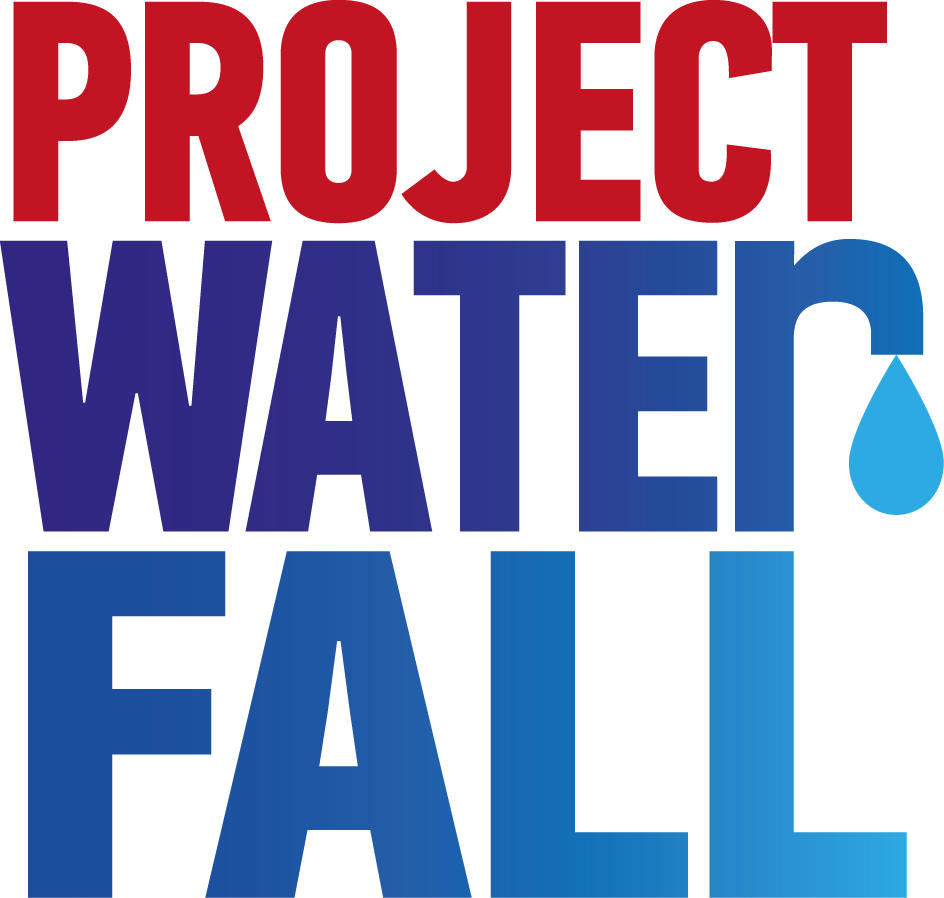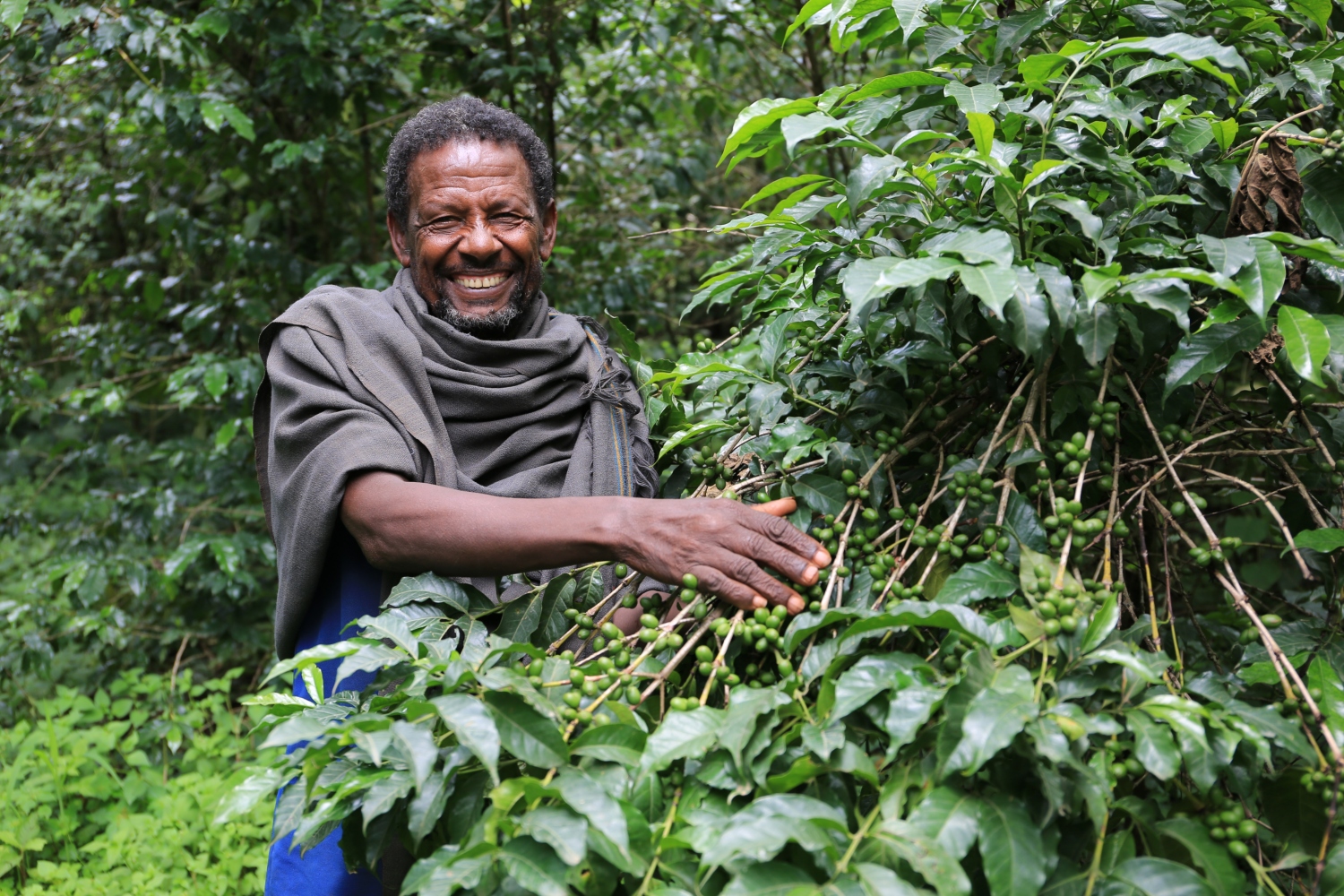Our partners at WaterAid met with Gash, a 58-60 year old farmer who has six children and lives in the Addis Amba sub-village of the Agomamit village, a community which will be gaining access to clean water as part of our latest project in partnership with WaterAid UK.
Gash explains the connection between water and coffee in his community, and how the shortage of water impacts his ability to take his farm to it’s full potential.
The following interview and photos were taken by Behailu Shiferaw / WaterAid.
How young are you, Gash?
“I am not as young as you think. I have seen governments come and go. I could be between 58 and 60.”
I wonder what not knowing one’s age feels like. You know in the city, we are quite sensitive about how old we are or how old people think we are. Do you regret not knowing it?
“I am just grateful to be alive. I have lived through plagues in which people’s lives were as cheap as cabbage. We buried seven to eight people a day. I don’t care how young or old I am; I am just grateful for my life.”
You are right. What was the name of the plague?
“It was just called The Plague. If it gets in the household, it would not leave until it finished everyone.”
Were you born and raised here?
“Yes.”
Where did you get your water from?
“There is a river called Guisa. That supplied all our water – drinking, bathing, and washing clothes. Everything. We were somehow fine. I think the water was clean back then. All we had to do was collect the water, put it in a big clay pot and leave it alone for the dirt to settle down over night. We also made a small wreath of some plant called Zhercho, which had thorny rose-like stems and we believed it helped purify the water. As time went by the river water became dirtier and dirtier and we started getting sick.”
So where do you get your water now?
“We collect it from a nearby village. It’s 15 – 20 minutes away from here in the summer. But in winter, you will have to walk through the mud, which can be knee-high. Then it would take as long as 40 minutes to get there because you have to watch each step. The problem is not the 15-minute walking distance. It’s the waiting in line. If you go to collect water, then you’d better not have any other plans for the day. There are regular opening hours as the security guard manages the pump and he can’t be there all day and all night. There are times when our wives or children stood in line for the whole day, and they won’t have made it to the pump because the guard has to leave. So they leave the jerry can behind and go there the next morning and collect water. It’s a struggle.”
Really? How many people does that pump serve?
“503 households from four sub-villages depend on it. So each household brings two jerry cans, that is over a thousand jerry cans in line. So whoever is collecting water stands there in line for hours and brings back 40 litres of water for the whole family. I have five people in this house. 40 litres is barely enough, but that is all we get and we have to manage it.”
Couldn’t you dig a hand-dug well?
“There isn’t a household that hasn’t tried that. We always hit bedrock. That is why we needed an outside help. To penetrate beneath the bedrock. That is how that pump was built.”
Is there a general shortage of water or it’s just drinking water?
“There is general shortage of water unless it’s the rainy season. If we had enough water, I could have planted coffee across all the land I have. But now I have to farm only those crops that can grow with seasonal winter rain such as green pepper and wheat.”
How much land do you have and how much of it is covered by coffee?
“I have 1.25 hectares of land and only 0.125 hectares of that is covered by coffee. That is all I can water from the little irrigation water I get once a month or every six months. The irrigation water is released from upstream areas. Then each farmer gets to use the water for four hours and then the next farmer will guide it to his own farm and waters his farm for four hours. And it goes on like that. There are 600 farmers who use this irrigation. So I only get to water my coffee plantation for four hours every four to six weeks. I can’t cover more than a quarter of a hectare in four hours. So I saved only that much land for coffee and the rest is now covered with seasonal crops such as green pepper and wheat that need only the winter rain.”
If you had all the water you need, would you cover all of it with coffee? Why?
“Of course, if I had enough water, I would cover it with coffee because of its commercial value to me. A small cupful of coffee is worth as much as a kilo of wheat.”
How important is water to coffee?
“You can’t think of coffee without water – from farming it to washing it to brewing it. For us farmers, a good coffee harvesting season has always been the one in which we had rain in March. If the coffee had water in March, that water will sustain it until the rainy season that starts in June. If it hadn’t had enough water in March, then it will be shocked by the winter rain that goes on for months. A good rain in March means a good produce that year. So that is why we irrigate our coffee farm during the summer. But all we get is four hours of irrigation water in four to six weeks. That is why we can’t cover more of our land with coffee.”
Taking part in UK Coffee Week, buying artwork from The Coffee Art Project, catching a show at The Coffee Music Project or visiting The London Coffee Festival are just a few of the ways you can help support this great cause.
Project Waterfall will be fundraising for this project over the next 4 years, ultimately reaching over 10,000 people in Gash’s community with clean drinking water and sanitation.






